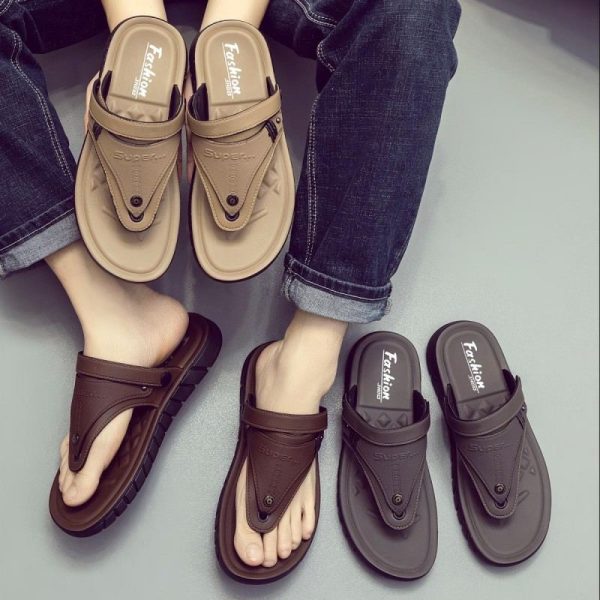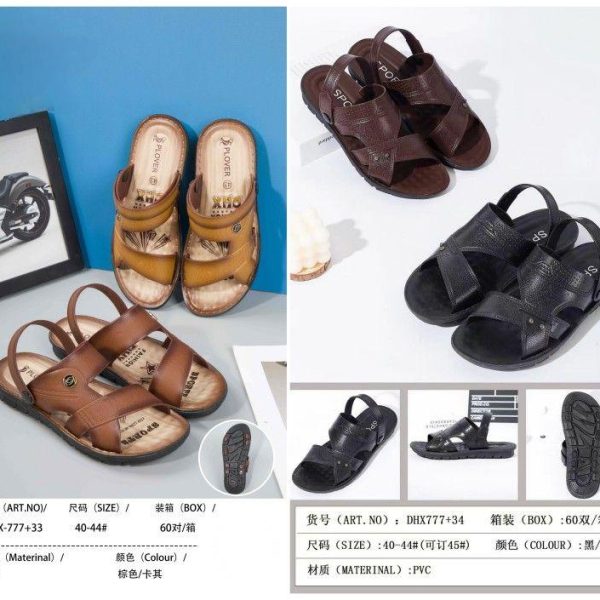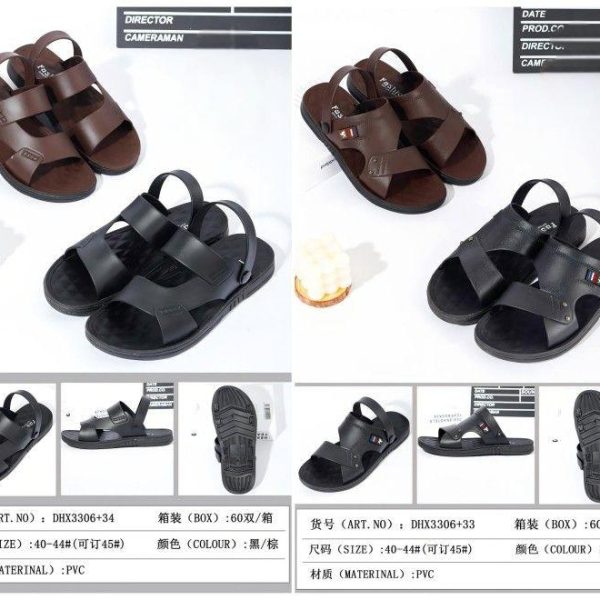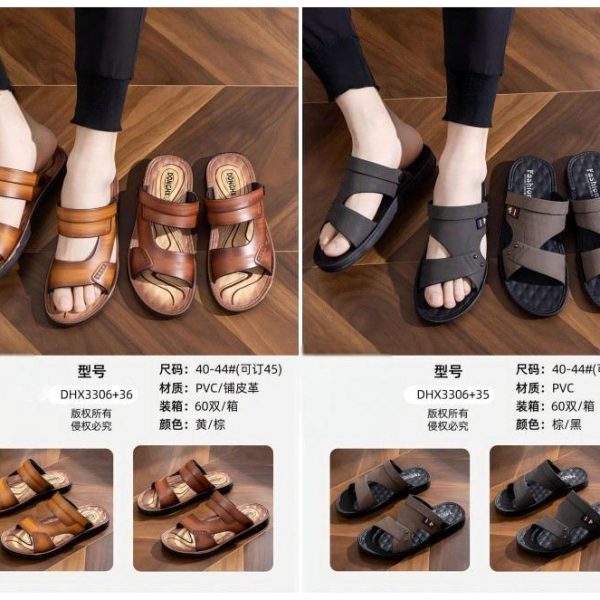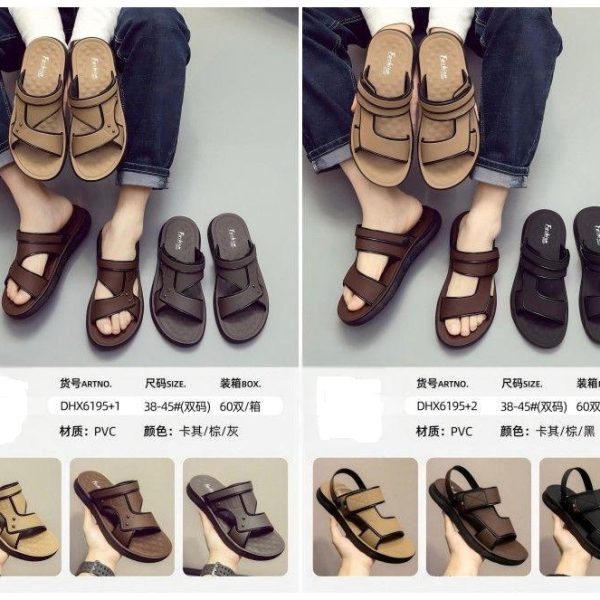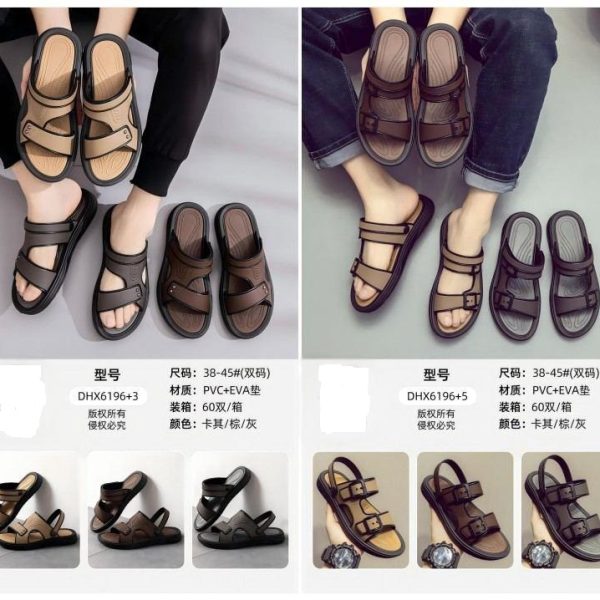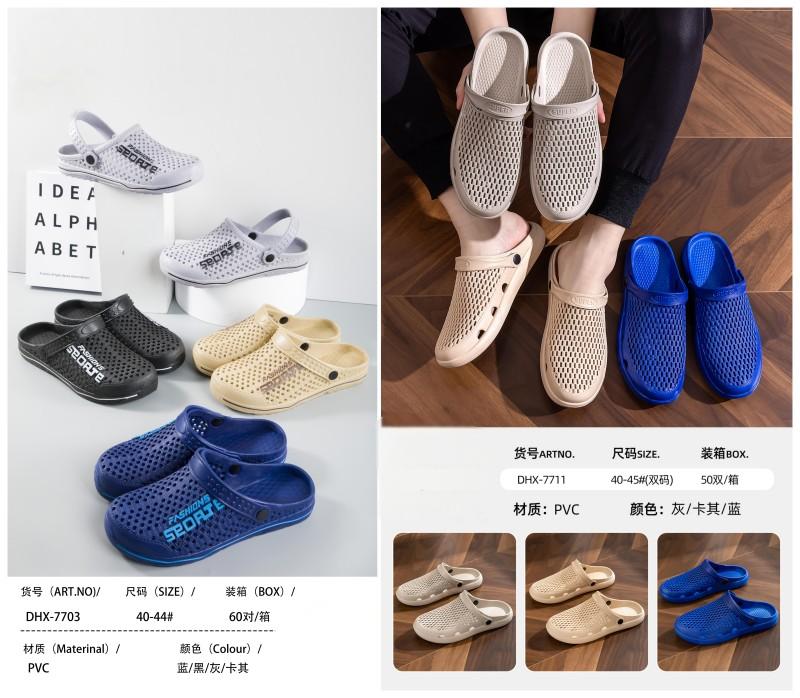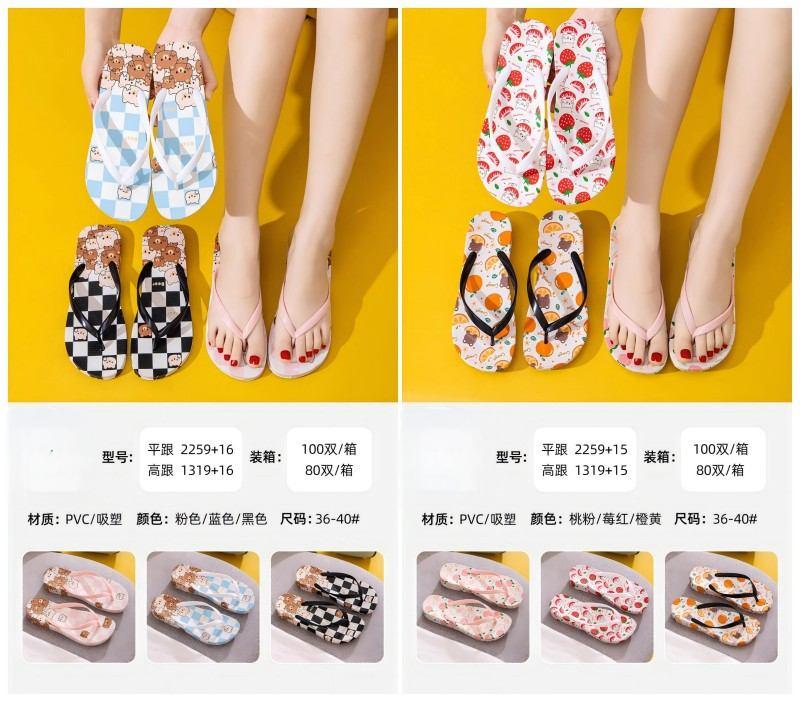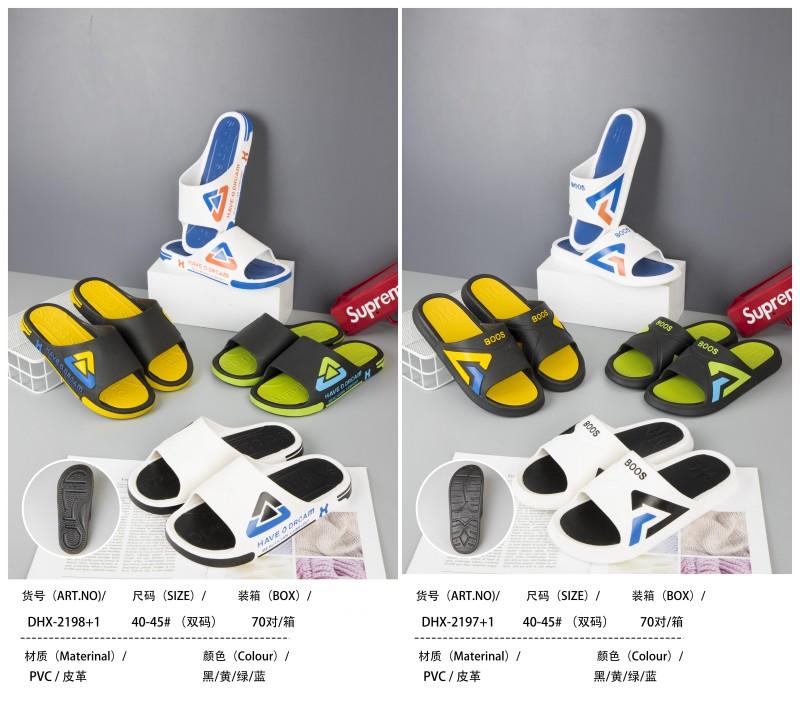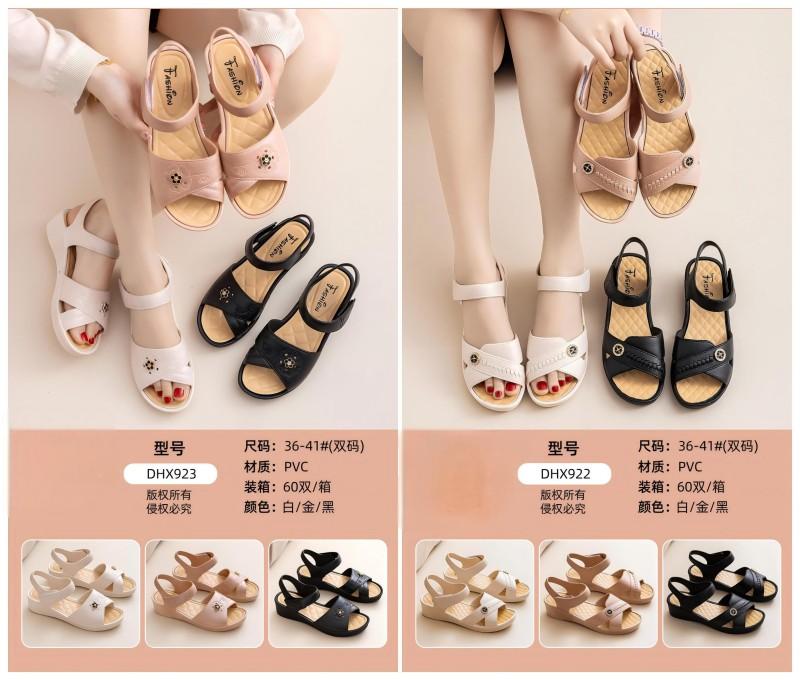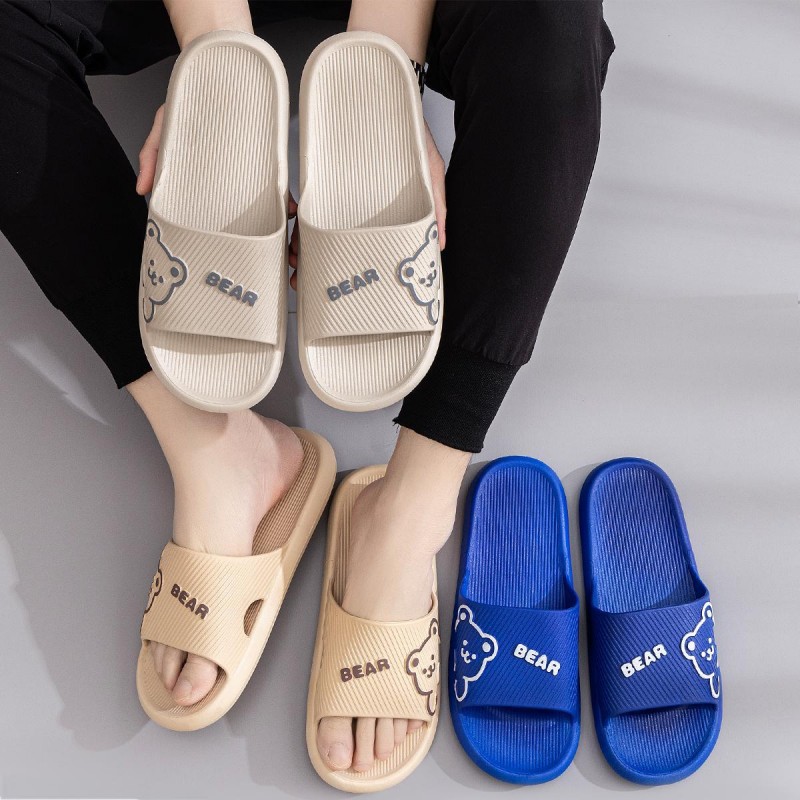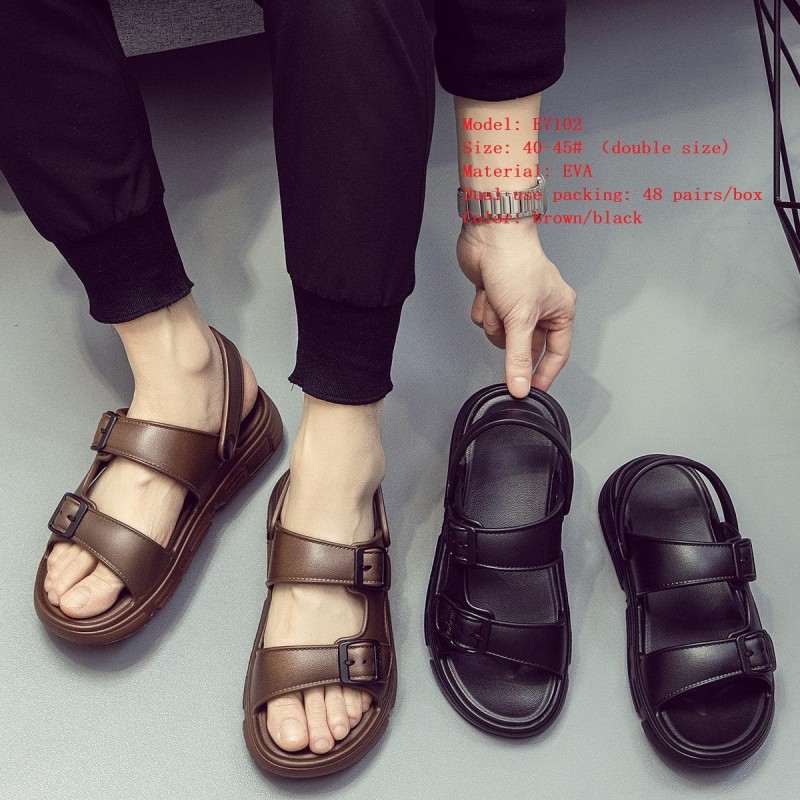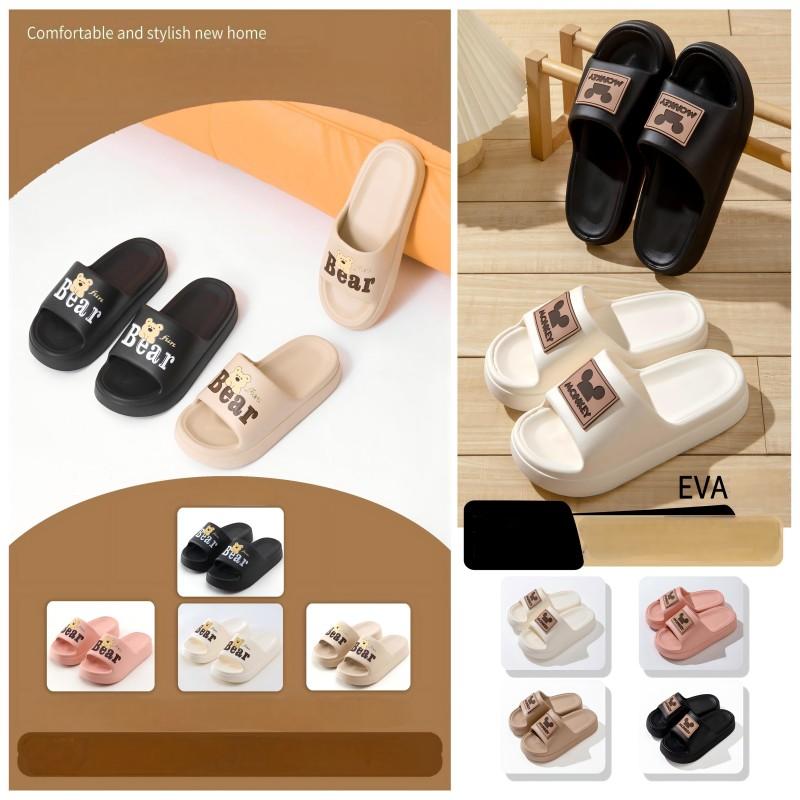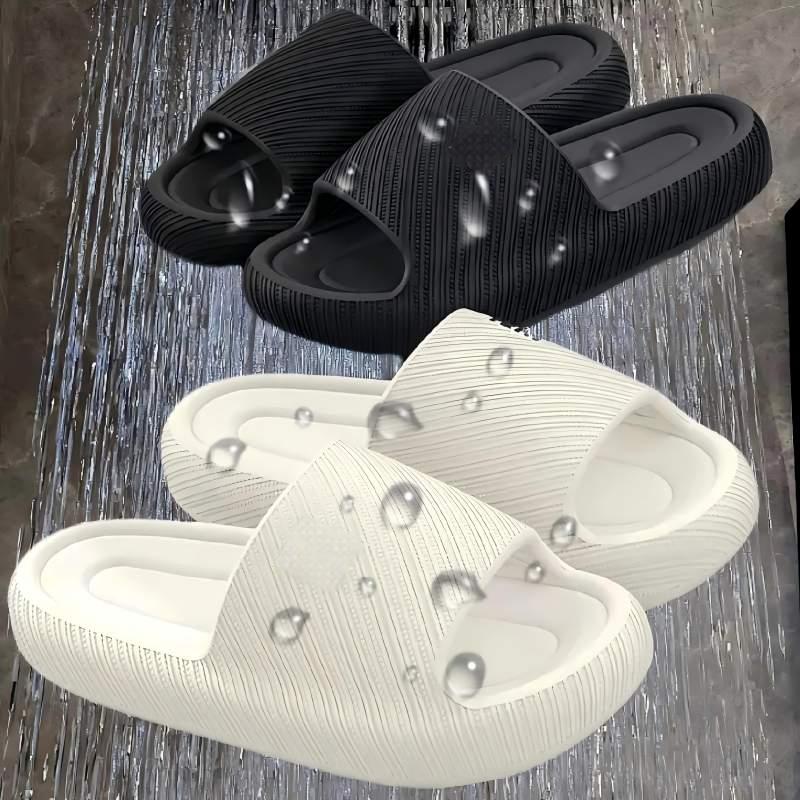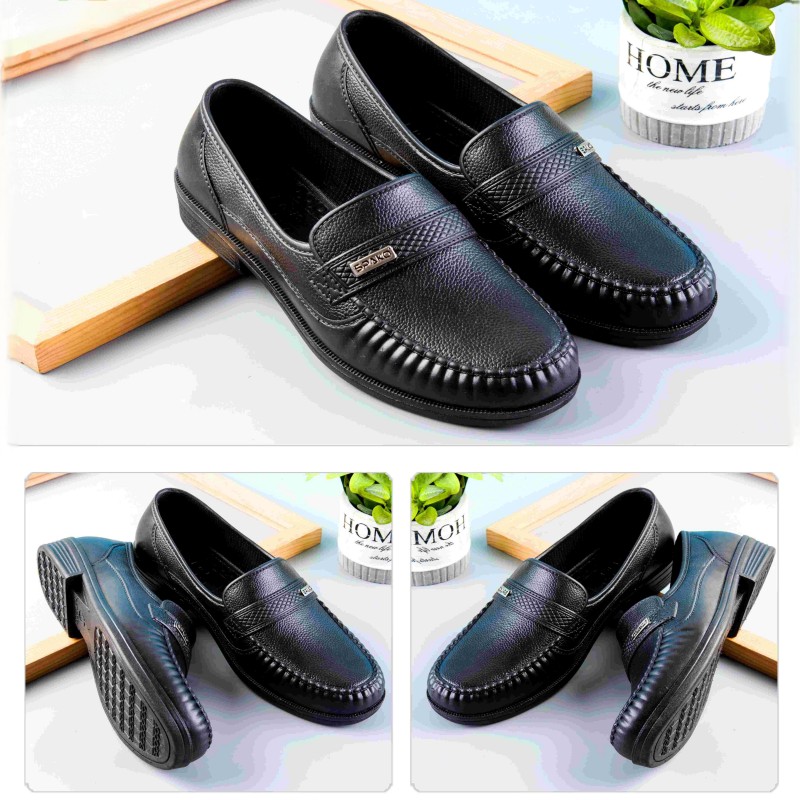-
No. 34 Xiayaopo, Bopu, Wuchuan City
PVC Leather Sandals for Men | Comfortable & Non-Slip
Easy to Wear. Hard to Slip.
These PVC leather sandals for men are soft, strong, and slip-proof. Walk on wet floors, beaches, or gym showers without worry. The adjustable straps fit all feet. The lightweight design makes them perfect for travel, recovery, or daily wear.
Why You’ll Love These Sandals
✅ Non-Slip Soles – Deep treads grip tiles, boats, and wet floors.
✅ Soft PVC Leather – Waterproof, easy to clean, and vegan-friendly.
✅ Cushioned Support – EVA foam keeps feet comfortable all day.
✅ Adjustable Straps – Fits wide or narrow feet securely.
✅ Quick-Dry & Light – Under 0.6 lbs, great for beach trips, gym bags, or travel.
Sandals Made for Real Life
| Best For | Why It Works |
|---|---|
| Beach Days | Sand and water won’t stick. Dries fast. |
| Gym & Pool | No slipping on wet floors. Easy to pack. |
| Travel | Lightweight, folds flat in luggage. |
| Foot Pain Relief | Arch support for plantar fasciitis. |
| Everyday Wear | Dressier than flip-flops, stronger than slippers. |
What’s Inside?
✔ Top Layer: PVC leather (no cracks, no stains).
✔ Footbed: EVA foam (soft, bouncy, breathable).
✔ Bottom: TPR rubber sole (bendy but tough).
✔ Straps: Hook-and-loop (easy to adjust).
“Slip them on after work, at the pool, or on vacation. Your feet will thank you.”
Sizes & Care
- US Sizes 7-14 (fits regular and wide feet).
- Wash: Wipe with a damp cloth. No machine wash.
- Dry: Air-dry only.
Note: These sandals work best in summer, travel, or recovery.
Need More Options?
- For women, try our Mom Sandals.
- For lightweight beachwear, see our EVA Sandals.
- For house slippers, check Unisex House Slippers.
Get Yours Today!
No sweat. No slips. Just comfort.
👉 Buy Now – PVC Leather Sandals
🔹 6-month warranty against defects. 🔹 Free returns if they don’t fit.
Walk easy. Stay steady.
Related Products:
- Men’s Flip Flops – Soft for showers.
- EVA Beach Sandals – Super light.
- Kids Non-Slip Sandals – Safe playtime.
Made by: Shoes Manufacturer – Trusted since 2010.
10 things to note when purchasing products from China
Help Center
Have a query? Please check this question and answers
Composition difference:
- PVC (polyvinyl chloride) is polymerized from vinyl chloride monomers, and plasticizers (such as phthalates) and foaming agents are required to improve softness.
- EVA (ethylene-vinyl acetate copolymer) is copolymerized from ethylene and vinyl acetate, and has high elasticity without the need for additional plasticizers.
Characteristic comparison:
- PVC is relatively hard and relies on plasticizers to adjust its softness;
- EVA naturally has rubber-like elasticity, remains flexible at low temperatures (can withstand -76°C), and is anti-aging and non-toxic.
Advantages of EVA:
- Lightweight (density about 0.945 g/cm³), excellent shock absorption, suitable for long-term wear;
- Closed-cell structure is waterproof and moisture-proof, and resistant to chemical corrosion.
PVC limitations:
- Poor air permeability, easy to breed bacteria due to sweat;
- Easy to deform at high temperature, easy to crack at low temperature.
- PVC process is complex: It needs to go through multiple processes such as kneading, plasticizing, pulling, punching, molding and foaming, and strict temperature control is required (such as injection temperature 140–175℃).
- EVA is more efficient: The mainstream process is one-time molding (granulation → mold → foaming), which reduces waste and has a short cycle. For example, the one-time injection process is suitable for mass production and has lower costs.
- In order to reduce costs, some manufacturers use phthalate plasticizers, which are easy to migrate to the human body. According to the random inspection in 2025, 50% of PVC children’s sandals exceeded the standard (the highest exceeded the national standard by 509 times), which may interfere with endocrine and cause precocious puberty in children.
- Solution: Choose products that meet the national standard GB 30585-2024 (phthalates <0.1%), or give priority to EVA materials (no plasticizer required).
- EVA: Natural anti-slip performance is good, but anti-slip pattern design is still required when the surface is too smooth.
- PVC: Hard and brittle materials have poor anti-slip performance and need to rely on the sole pattern to improve grip.
- Purchase advice: Avoid styles without anti-slip patterns, especially in bathroom scenes.
- EVA: Biodegradable and low production pollution.
- PVC: Harmful gases such as hydrogen chloride are released during the production process, and it is difficult to degrade after being discarded.
- Trend: The EU and other markets gradually restrict PVC shoe materials, and EVA has become the mainstream environmentally friendly alternative.
Scenarios for choosing PVC:
- Short-term use, low-cost needs (such as disposable slippers in hotels);
Scenarios for choosing EVA:
- Children’s shoes (high safety requirements);
- Sports/outdoor slippers (need shock absorption and weather resistance);
- Environmentally friendly products (degradable needs).
Quality inspection points:
- Look for GB 30585-2024 standard;
- Avoid products with strong odor or too bright colors (may contain excessive heavy metals).

